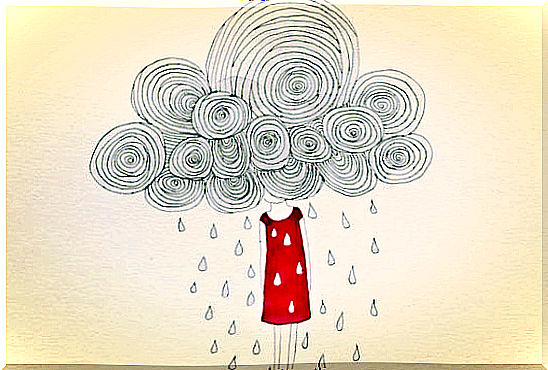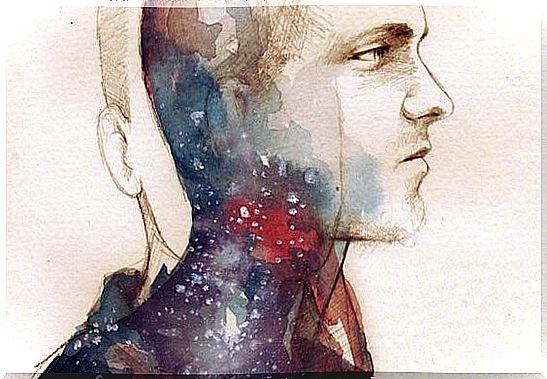Complicated People Or The Art Of Making The Simple Difficult

There are people like this, complicated and demanding, who have a problem for each solution, a contradiction for each evidence, and a storm for each moment of calm. They are petulant and thieves of inner peace, complex personalities who adore arguments, who exhaust, weaken and that we must learn to manage to preserve our mental and emotional integrity.
Many of us would love to be able to take these types of profiles to our “spam” tray, to a parallel dimension where our closest reality would be safe and intact. However, if there is something that we all know, it is that either in our family, in our work environment or even in the group of friends, there is never a lack of complex people with whom we are – almost – forced to live.
Confucius said in his texts that there are people who seem to find some kind of reward by finding fault with others. This can be very disabling if the person who exercises this practice is our partner or a father or mother with their children. The “complicated” personality, understood as one that shows erratic, unequal, narcissistic, manipulative behaviors, and even psychologically aggressive moments, contains nuances that it is necessary to know in depth.
The art of making the simple difficult hides a labyrinth of emotional problems that it will be very useful for us to discover.

Difficult people or the ability to see the world from the negative plane
We are all complicated in our own way. Each one of us has those particular tangles lodged in the mind and the heart, where fears are mixed with insecurities, frustrations with anxieties. However, the main difference with respect to those other profiles that inhabit the most extreme side of complexity is the inability to establish functional, respectful and stable social and affective relationships.
The most obvious feature of these people is that they present a clear emotional instability. Something like this undoubtedly already warns us of a series of underlying problems that explain that rigidity, that inflexibility and constant inclination to seek the fault of others, to expose, to make the difficult easy and take root in the subsoil of negativity.
Complicated people, and this is important to take into account, may suffer from dysthymia (an affective disorder of a chronic depressive nature) or even some type of personality disorder that undoubtedly hinders that daily and meaningful dealings with the people who make up their nearby environment.
Other times, and Daniel Goleman talks about this in his book “Emotional Intelligence”, when we go through situations of high and continuous stress over time, we stop thinking clearly, we are not able to see priorities and we have a “natural tendency” to see things much more complicated than they really are.

With all this we mean something as simple as it is evident: difficult and complicated people, those with whom it is often difficult for us to live together, may hide some kind of underlying problem that explains this pattern of behavior. Sometimes they are men or women who need help.
On the other hand, we ourselves can also, at a given moment, live with that dark cloud in our heads, there where life, instantly, is not tremendously complicated, like a puzzle with missing pieces, like a tetris game. impossible to solve.
Intrapersonal and Interpersonal Intelligence
According to Howard Gardner, intelligence is not just one, but there are several. He is the father of the Theory of Multiple Intelligences. Two of these intelligences are the Intrapersonal and the Interpersonal. The first, in short, refers to the ability we have to deepen ourselves, to know our emotions, feelings. To know who we are and where we are going. The second, Interpersonal Intelligence, is the same but in reverse, that is, knowing the state of others, understanding their emotions and being empathetic and assertive with our environment.
From this theory, it would not be unreasonable to say that complicated people would need to develop these two types of intelligence. Why both? To get to know themselves and in this way get to know others. Both intelligences feed back. According to this theory, we all have different intelligences, only that we develop more than others. Even so, all of them can be empowered, so difficult people have an interesting path ahead of them to begin to see life more easily.
Smart tactics for dealing with difficult people
In view of the above, we are already clear that in the first place it is advisable to be sensitive to these behaviors and understand that complicated people may be going through a delicate personal moment. However, and on the other hand, there are also those who have chronicled their manias, their narcissistic tricks and that disguised desire to make life difficult for others.
If this is the case, if there is a profile with these same characteristics near us, the first thing we must be clear about is the following: we cannot change their way of being, but we can change the way in which we interact with them so that their actions affect us less. We explain how.

5 keys to staying in control with complicated profiles
The most obvious recommendation is the following: establish distance. Now, we are not referring only to “physical distance” – which, as we already know, is not always possible – we are referring to the need to establish psychological and emotional barriers. A complex challenge that we can achieve with these keys:
- We must always communicate assertively.
- Make it clear how you feel every time the difficult person does or says something that affects you, hurts you, or annoys you. It is necessary to put on the table what are the effects of their actions.
- You have to detail what you cannot do, what should not be repeated.
- At the same time , it is advisable to offer alternatives to their actions so that they take them into account (next time it would be good if you did not look only at my mistakes, if you provided solutions or proposals instead of criticism everything would be better. I know you can do it and I trust it).
- Finally, it is also very wise to always remain calm and understand that losing your nerves will make the situation more tense. The ideal is to build a distance barrier, a security space.
To conclude, there are people with a natural tendency to complicate themselves and to complicate the lives of others. . If not, there is no other option but to unfold our emotional umbrellas to protect ourselves from your personal storms.









